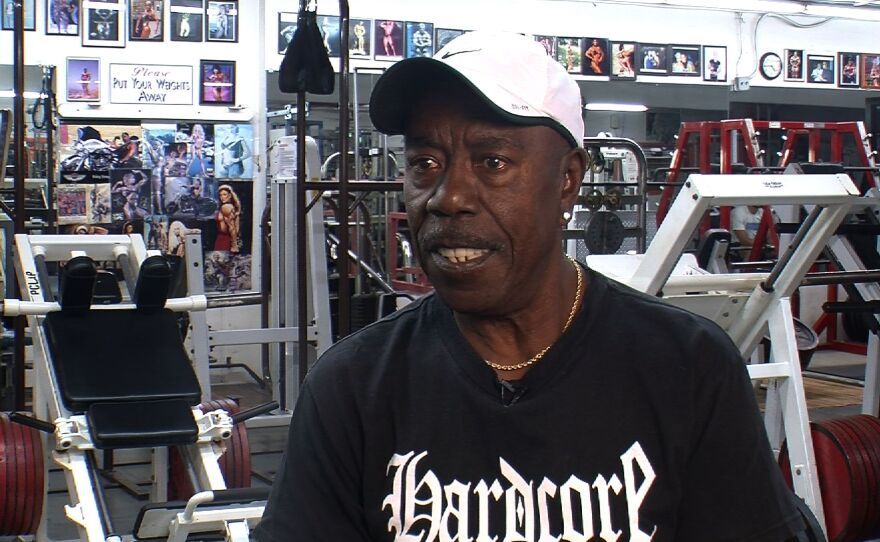"See what I did. Notice the back is straight, I'm not leaning, I'm not pulling this way," said Bill Moore as he talked to a client at North Park's Stern Gym. He's a teacher with a champion's pedigree.
"Alright, one, good. Hit my chin. Two. Three. Good," said Moore.
Moore won body building competitions in his 40s and 50s. That got the former Marine's picture on the wall of Stern's Gym in North Park. He's still working at 70.
"You can only play golf sometime so long," said Moore. "You can only fish so long. Then it becomes boring. Then when it becomes boring what are you going to do."
Moore wants to stay active. Life has been good, but not so good that he can quit working.
"I have savings," said Moore. "I never had a pension. So I've got to continue, as long as I can walk, talk, breath, I'm gonna be working. But that's not the important thing. The important thing is I love what I do."
Moore is part of a growing segment of America's aging population. The Pew Research Center finds a quarter of the people living past retirement age are still part of the work force. Nearly half are working because they need the money. The economy gets some of the credit.
"We wouldn't see that phenomenon if it wasn't for the recent market downturns and lack of growth in the last five years," said Tom Warschauer, San Diego State University professor emeritus.
That's backed up in a new Wells Fargo poll. The survey found a quarter of middle class Americans said they'll need to work until they are 80 in order to be comfortable in retirement. Nearly three quarters of those polled said they expect to work past retirement. And, more than half think they'll have to work past retirement to make ends meet. A number of factors are at play, but two of them stand out. First, there's no mandatory retirement age.
"The net result is that's its entirely the option of the individual. Secondly as I mentioned, life expectancy has gone up substantially," said Warschauer.
People who think they're going to live longer, plan to work longer, according to Warschauer.
Richard Schulman is a 71 year old computer software salesman and consultant. He's sold imaging programs to scores of governments agencies interested in fighting wildfires. San Diego County uses one of his systems.
As the Pew Research Center discovered, just over half of those working past retirement do it because they want to.
"I get the satisfaction of knowing I'm doing a good job," said Schulman. "I get lots of feedback and I seem to be part of the team and needed. And the clients are loyal for that."
The retired Naval commander said financial planning, a modest lifestyle and and some luck affords him the freedom to decide about work.
"It's all a matter of resources, of desire and it's what you like to do," said Schulman. "My wife Nina, always gives me constant feedback, and says, 'you enjoy what your doing. You don't need to stop. Just make sure you're balanced.' And that's what I do."
Most workers thinking about their retirement want what Schulman has. The Pew Research Center said 60 percent plan to work for pay after retirement because they want to. Thirty percent expect to work for pay after retirement because they have to.







